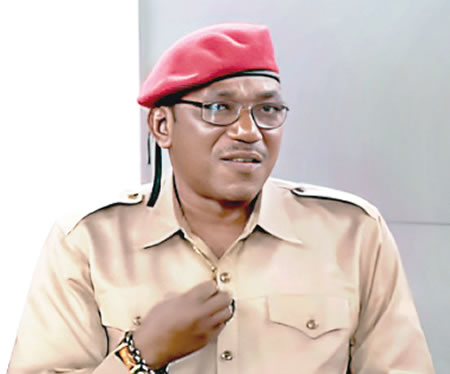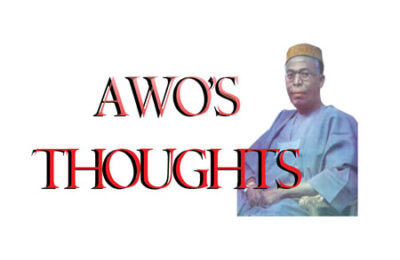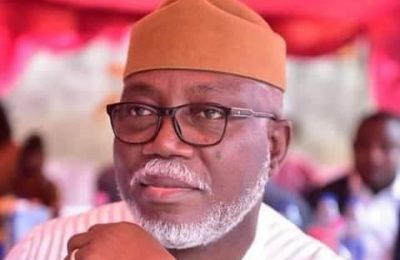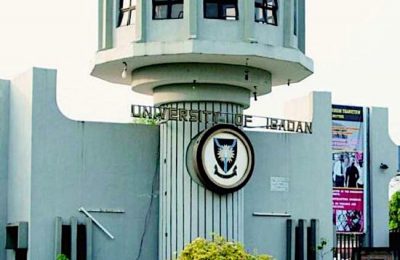Former Minister of Youth and Sports, Solomon Dalung, speaks with ISAAC SHOBAYO on a wide range of issues, including the recent cabinet reshuffle, the emergence of a new terrorist group Lakurawa in the North-West, the tax reform bill, and painful economic hardship Nigerians are currently facing, among others. Excerpt:
WHAT is your opinion on the recent cabinet reshuffle carried out by President Bola Tinubu?
In my opinion, what happened was a cabinet expansion, not a reshuffle. It was more or less a poverty alleviation approach by President Bola Tinubu to bring some of his “left-out” and disgruntled campaign coordinators on the table. There was nothing there to imagine as a cabinet reshuffle. Those ministers who were sacked were orphans who had no parents in the kitchen; so they had to be thrown out. That basically was what happened. There was no cabinet reshuffle at all.

Expectations of the Tinubu-led government are high amid biting economic condition and its attendant hardship bedeviling the country. What do you think the government can do to save the situation at hand?
Well, Nigerians are now more frustrated than even before the cabinet reshuffle. This is because Nigerians expected that the president should have reshuffled his cabinet by sacking non-performing ministers whose ministries, in the past 18 months or thereabouts, have contributed to unleashing hardship on Nigerians. But these ministers, some of them were even rewarded and reassigned to other ministries while some were retained.
Let me be a bit specific: the Minister of Finance and Economic Planning, since his appointment has not lived up to the expectation of Nigerians. The economy has

been nose-diving. The man is a financial management expert. He is not even an economist; he cannot plan an economy and so he has no business to have returned to that position. His policy is inconsistent—one statement today, another one tomorrow. Incoherent policy analysis shows that he has no business being returned there.
The Ministers of Defence, the two ministers, were returned. Were they returned to supervise the introduction of the new terror group called Lakurawa, or what? What were they returned for? Their tenure has witnessed the worst security deterioration in contemporary history. In fact, some of the attacks going on in their home states, especially the Minister of State in Zamfara, Katsina, Sokoto, Kebbi, Kaduna, and Niger, suggest that they don’t have a clue how to manage the defence of this country, and they have no business being there.
The Minister of Power, who recorded the highest number of national grid collapses, is adequately compensated because he belongs to the ‘Emi Lokan’ brigade. He has no business there. The man completely cannot handle the power sector. Nothing has changed. He has even reduced the national megawatts we had. He has mismanaged the administration of the DISCOs and the increase in electricity tariffs, which suggests that he doesn’t know anything about the problem of this country because the increase goes to the roots of the small-scale and medium industries, which will undermine the economy. Yet he says that’s an achievement. The man has no business to be there.
The Minister of Foreign Affairs— Nigeria is recording the worst foreign policy in recent years. I mean, he advised the president to recall ambassadors, including political and career ambassadors. It has never been done. You only recall political ambassadors while you leave the career ambassadors in strategic countries because government work cannot be shut down. Now, there is nowhere Nigeria has an ambassador. All our embassies are managed by just top or senior bureaucrats in the Ministry of Foreign Affairs who don’t have the capacity or the authority to act in such situations. This explains why in Libya, the aircraft conveying the Super Eagles was forced down to land in an obscure airport, despite the entreaties by the pilot of risk to safety. And it was done by a smaller country, and nothing happened.
Look at what happened in Saudi Arabia, where a Nigerian, where after satisfying all requirements of screening, he travelled under the new regulations by the Saudi Kingdom. He travelled to Saudi Arabia about the same time President Tinubu was in Saudi—that was last year. And he was blocked at the point of entry and repatriated to Nigeria. Because we didn’t have anybody to speak for him, there was nothing that could have been done to prevent it. If we had a functional mission, the ambassador would have intervened. That minister is still there. Nothing has happened to our foreign policy under his watch. Nigeria, Burkina Faso, and Mali moved out of ECOWAS, one of the greatest threats to our regional cooperation and relationship. The man is still there as a minister. Other people around the president, who Nigerians have been crying about, because of their roles in introducing policies that continue to unleash hardship on Nigerians are still there.
The Minister of Information has no business being there because the information machinery of this government is propaganda machinery. In fact, their propaganda machine is worse than that of Joseph Goebbels of the infamous Nazi government. Yet the man is still there. I can go on, but the expectation of Nigerians about the cabinet reshuffle was a complete disappointment.
The new terrorist group, Lakurawa, has started unleashing mayhem in Nigeria, precisely in the northwestern part of the country. What do you think should be done in this context to arrest the situation before it gets out of hand?
Well, let me borrow the words of my mentor, Baba Fela Anikulapo-Kuti of blessed memory: it is a double jeopardy [double wahala] for a dead body, if the Nigerian security architecture could not contend with bandits who have been sacking, raping women in the presence of their husbands, and raping daughters in the presence of their parents. In fact, one of the ignoble practices by these bandits is to knock on the doors of Nigerians in the night and ask to “borrow” their wives. They will take them to the bush, spend some weeks, and bring them back. If you refuse, you are killed. This inhuman act has been happening under our watch, and our security services cannot contend with them.
These bandits are on social media. They come on TikTok live now. Why has it been difficult for the Nigerian security services to track these people and deal with them? But the Nigerian security services can track anybody who expresses an opposing opinion against the government. They can track them, but they cannot track bandits. So you are asking me what should be done? The Nigerian security services, especially our intelligence community, are very good at oppressing common and helpless people. They were able to go and arrest schoolchildren on their way to school in Kano, Katsina, and Kaduna, bring them, and lock them in a dungeon for over three months in Abuja, charging them with trumped-up charges of terrorism, treasonable felony, and attempting to overthrow the government. They malnourished them, maltreated them, and ferried them to a court, and the minors were collapsing. That forced the judge, who is a mother, to flee into her chamber because she couldn’t contend with the very horrific scene being created before her, but the government, through their counsel, again, was defending that the minors were graduates and were married. The minors were accused of protesting and raising a foreign flag. I mean, Nigeria is blessed with brains. I wonder why there is no counsel in the Ministry of Justice to have advised the government that Section 148, Subsection 5, of the Flags and Coat of Arms Act 1990 allows a citizen to raise a foreign flag as an act of patriotism, except if it is a flag of the Commonwealth. The flags raised by this minor, as alleged, were Russian flags, and Russia is not a member of the Commonwealth. You can see, this is how they painted Nigeria before the world. So I think Nigerians should rise up. Communities should rise up. They should activate their traditional and cultural mechanism of trying to protect themselves, because these were communities that were never conquered, and so they cannot be conquered in modern Nigeria by either bandits or Boko Haram. But the Nigerian security architecture today lacks the political will to deal with the situation. They have the capacity, but they lacked the political will to deal with insecurity. Once this political will is established, this insecurity will disappear within one month.
On the controversial tax reform bill, the agitations against it have continued to swell, precisely from the North. Why is the North, especially the governors and elite, afraid of this?
Well, the tax reform bill does not receive resistance from only the North; the National Economic Council, which comprises the 36 states of Nigeria, rejected the bill. So to your question, why is the North afraid of the bill? It is just like, okay, you are looking for Joseph of Arimathea, who helped Jesus Christ carry His cross to Golgotha. Nonetheless, the North has genuine concerns about the bill. Let me cite an example. The network services, MTN, Glo, Airtel, and 9Mobile; their headquarters are in Lagos. Now all consumption taxes are paid to their headquarters in Lagos. The North has the largest population of those who consume these services, and the law provides that all this consumption tax derived will be paid to their headquarters, which is in Lagos. And the benefiting state will be Lagos because the tax will be deemed to have been collected by the Lagos State government, and this is consumption tax. So why would consumption tax be referred to at the administrative point instead of the point of consumption? Therefore, the North has genuine concerns about some of the provisions of the bill, and the entire governors of the country also have genuine concerns. And for the first time, I am standing with the National Economic Council on this, and I am 110 percent behind northern governors on this issue.
The economic hardship in the country seems to be getting worse on a daily basis, and Nigerians are groaning under high transportation costs, among others. What is the way out?
I have been suggesting what the government should do. But you know, the government is like a blind man. Anybody’s government is like a blind man. He doesn’t understand that people are watching him, except you touch him. So all the sufferings of Nigerians are not known to them [government] because they live in isolated environments. They are sitting fine with their children. They use public funds to travel anywhere they want; their children and wives travel at the expense of national revenue. So they assume that that is what is happening to everybody. So if you tell them that Nigerians are suffering, they will never believe this, because it has not affected them directly.
But what is the way forward? Moving forward because we love the country, there is no way this government can pretend that these economic reforms will yield any dividend without regulating the petroleum sector. Even if, like they claim, it has been deregulated, the government must introduce a subsidy. The government must bring down the prices of fuel to an affordable level, because there is nowhere in the world where the government does not subsidise one thing or the other. So their claim that they cannot subsidise petrol, which has a cost-effective impact on the lives of Nigerians, raises a very serious concern about the state of their minds, and the government must do that.
Secondly, the government must also withdraw the increase in electricity tariffs because it has a serious implication for the microeconomic sector. The barbers, the grinders, the welders—all these are people that contribute to the economy. They need light, and they cannot afford to pay high electricity bills. The government needs to do this. The president—I have suggested this—even though he has announced it in his statement, but the president must hold a national dialogue with the youth of this country because the youth are so frustrated and hopeless that if you do not do something about it, they stand to lose nothing, even if this country goes up in flames. The president needs to talk to them, involve them, and share whatever his vision is, but he can only do this if he has taken steps to demonstrate that he is a compassionate leader.
READ ALSO: Tribune newspaper, a true icon of Nigerian media, pillar — Saraki







